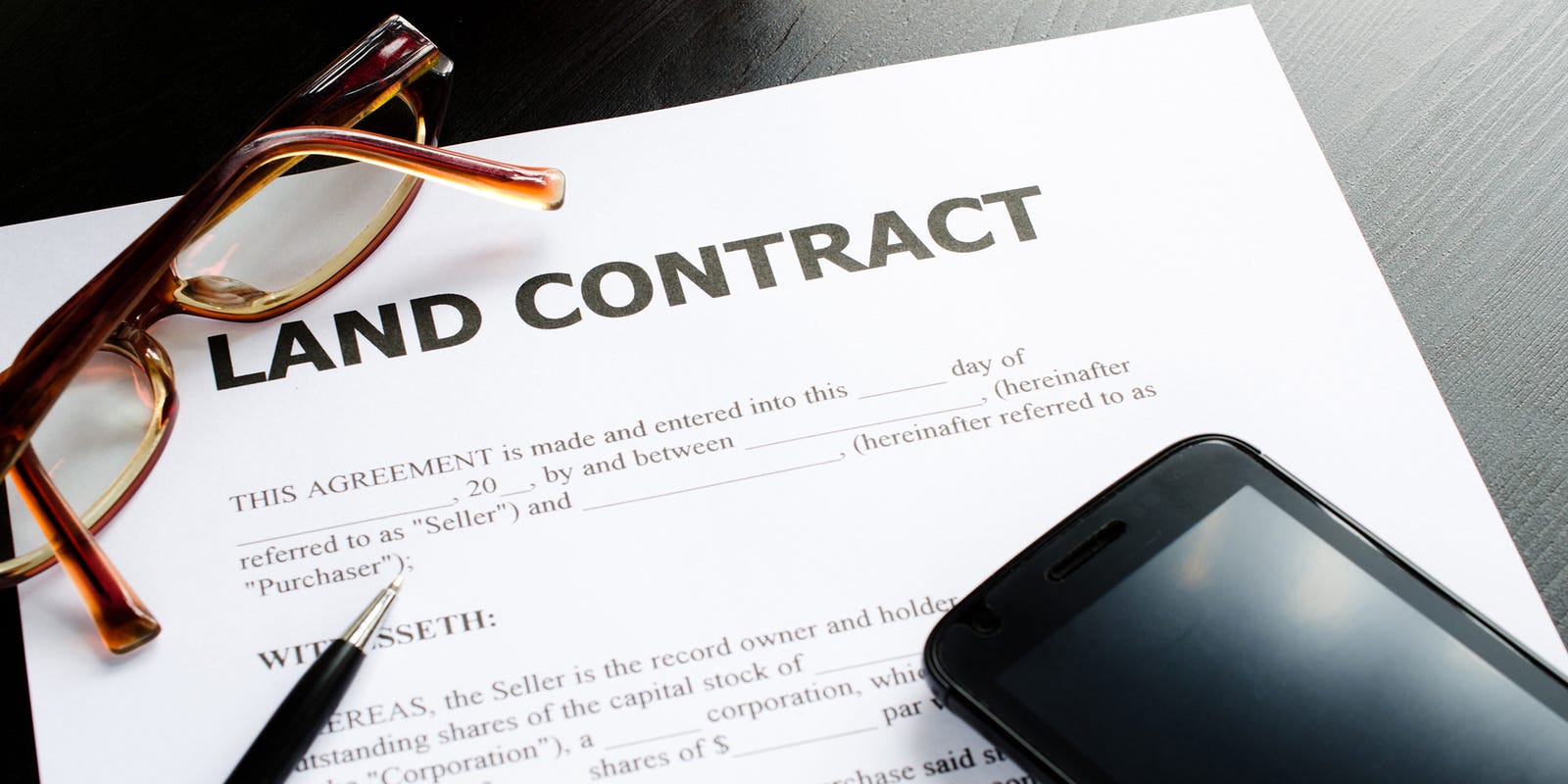The total number of land contracts according to the U.S. Census Bureau amounts to over nine million as of 2015. A land contract is a safe alternative for persons who can’t access the traditional mortgage loan due to credit score.

What is a land contract?
Simply put, it’s a legal document that serves as an agreement when purchasing a commercial or residential property. Unlike the traditional mortgage plan, a land contract involves paying installments to the seller until the payment is complete. It’s usually a written legal agreement between the seller and the buyer. The seller retains ownership and right to the property until the buyer completes the payment and the ownership gets transferred.
In some cases, the property can be a mortgage. In such a situation, the seller is obligated to stick to the original mortgage payments arrangement while the buyer follows suit. This style of land contract poses a challenge to both parties. As for the seller who takes junior lien position in this type of arrangement, they get to pocket the difference between what is paid as mortgage and what they receive from the buyer who pays on an agreed periodic basis. The disadvantage for the seller crops up if the buyer defaults in payment — they have to take on the responsibility of paying the mortgage when this happens.
What Land Contract Entails
The payment plan entails quite a number of things. Here are the principal things it covers.
The Sales Price
The sales price is the total amount to be paid. On completion of this amount, the buyer assumes full ownership and legal title of the property. The sales price payment plan varies depending on the land contract. It may involve a periodic payment wrapped up by a lump sum.
Down Payment
A down payment is the percentage of the sales price which is paid according to the agreement between both parties.
Interest rates
The interest rate is subject to change based on the agreement. The interest rates may change due to a number of reasons — conditions and terms are attached to the interest rate of the payments.
The Payment Amount
The payment amount is periodically paid by the buyer to the seller. Based on the sales price and interest, the payment amount is an agreed percentage that is paid on an arranged due date. It may include an agreed huge amount to be paid on completion of the loan. The land contract will contain an arrangement of the penalty charge for late payment or missing a payment. In some cases, if not all, the buyer can forfeit access to the property after a certain amount of payment is missed.
This aspect of payment is where both parties need clear and direct instruction on what the penalty will entail and at what point will a buyer lose access to the property due to missed payments.
At this point, let’s consider the ups and downs of the land contract.
The Advantages of Land Contract
Land contract benefits individuals with poor credit. Since such ones can’t get access to a mortgage, a land contract is a perfect alternative. Such ones can enjoy the benefits of property installment paying while working to prove their credit score.
The Seller Benefits
As the buyer benefits from the ease of land contract arrangement, the seller does also. The seller gets to enjoy the profit from the periodic payment. And should the buyer stops paying, the access of the buyer to the property can be withdrawn and the property ownership returns fully to the seller.
Purchasing Big
The ability to purchase big is available to buyers. Big spaces of commercial properties can be purchased conveniently under the land contract plan as this may not be possible with mortgage plans if their credit score is low.
The Disadvantages
Here are some disadvantages or risks of the land contract.
Depending on the Seller
A buyer depends too much on the seller. In situations where the seller has total ownership, there is usually no complication. However, when it is a wrap-around land contract, there is uncertainty in the air. The seller in this type of deal is also paying a mortgage. Should the seller default in payment, the buyer may lose ownership despite doing their part. This is because although the buyer is paying, the seller isn’t. Therefore the principal owner may withdraw access to the property.
High Interest
Since the sellers know the major reason why many seek land contracts is due to their inability to get a standard mortgage, they take advantage of the situation. They hike the interest rates making the sales price higher than the conventional price a mortgage would offer.
The Ownership Claim
The ownership claim arises when there is a need to file insurance claims. The ownership claim dangles between the owner and seller. In most cases, the more the seller pays, the higher the amount, the more equity is gained. However, as expected, the ownership still stays with the seller and they are legally recognized as the owner of the property.
Can I Convert a Land Contract into a Mortgage?
The answer is yes. Over time, after entering into a land contract, some buyers can improve their credit score and get access to a mortgage loan. When it happens, an existing land contract can be switched to a mortgage. To do this, make sure the payment history is intact and well kept as it will serve as proof to convince the lender of an ongoing land contract. Another document to tender is a copy of the land contract. With these, the lender will run some checks and ensure the ownership of the property. And the arrangement can then be converted into a traditional mortgage.
Should you have low credit or have a credit not high enough to secure you a loan for a big facility, a land contract is a go-to plan. Take advantage of this alternative until a switch to a traditional mortgage is possible.

This is great info. As I’m looking to learn more about commercial and land conversions
That was Great info as I am looking to learn more about land and commercial conversions
Thank you so much for liking the post
interesting
You have been my Network Marketing and Social Media Coach and I have experienced success with both. Now I follow you in the Real Estate game. Looking forward to much success in this area as well.
Cheers to success in 2021 for you
Thankyou